What makes the top 10 Bible movies of all time?
Bible stories have been adapted into movies for as long as movies have existed. Filmmakers have done everything from telling the story so close it’s like a sermon with pictures, to coloring outside the lines to imagine what happened after a famous Bible story. Some of these movies have been more reverent than others, but even the more daring movies have often provoked fascinating discussions about how we understand the Bible.
The following looks at 10 of the more reverent Bible movies over the years, from early classics to recent hits. Many of these movies have stories you have heard before, but they often present challenging ways of thinking about the stories that you may not considered.
Parents should be aware that while most of these movies tell stories that kids have heard multiple times in Sunday School, some of these movies (like Paul, Apostle of Christ) lean into the stories’ mature details. Others (like The Ten Commandments) have nothing gory or illicit, but they’re just a bit long for most kids to watch. A general recommendation (Yes if short and minimal gore, No if long or a little intense) is included with each film, as well as a link to a rating guide so parents can decide what is best for their kids.
Editor’s Note: These movies’ inclusion in this article does not mean Christianity.com endorses the companies who produce the movies or any dramatic license taken with the material. Readers are encouraged to research the movies for their own conclusions.
Photo Credit: Getty Images/allanswart
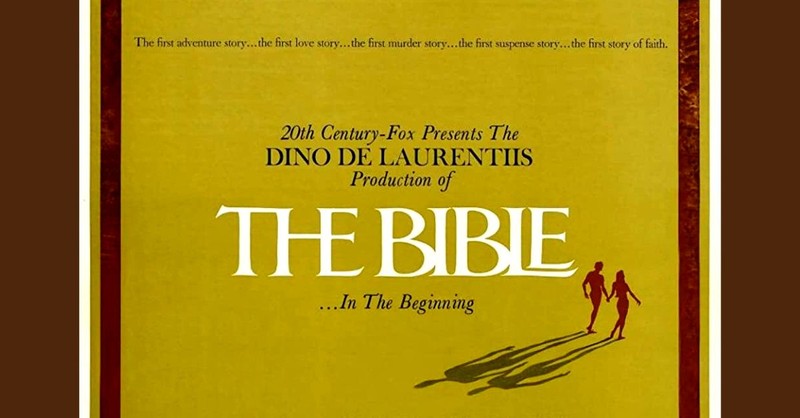
1. The Bible: In the Beginning... (1966)
The start of what would have been a movie series if it hadn’t lost money, The Bible: In the Beginning… is an offbeat Biblical epic. It begins with creation and ends with Abraham nearly sacrificing Isaac, with enough references to the Abrahamic covenant to give the story a throughline, though not a clear three-act structure. It came near the end of the Biblical epic trend and was made on a larger budget than The Ten Commandments, yet it feels smaller. Made in Italy without access to huge Hollywood sets, it doesn’t have the massive buildings or super-spectacular effects that audiences would expect.
So, the movie breaks most expectations for this kind of movie… and yet, somehow, that works. The camera moves around more than most Biblical epics, making even the smallest sets look interesting. Elements of comedy (Noah teasing an ostrich in the ark) and little visual touches (a snake coming out of a skull in the ruins of Sodom) make each scene memorable, even if the scenes lack the grand scope of Ben-Hur. Famous actors who were obviously acquired for their commercial appeal fit their parts much better than the clunky star cameos in films like The Greatest Story Ever Told. It may not be a flashy Bible movie, but it’s aged much better than its contemporaries.
Further Reading: From Genesis to Revelation: The Bible is All One Story
Photo Credit: Twentieth-Century Fox
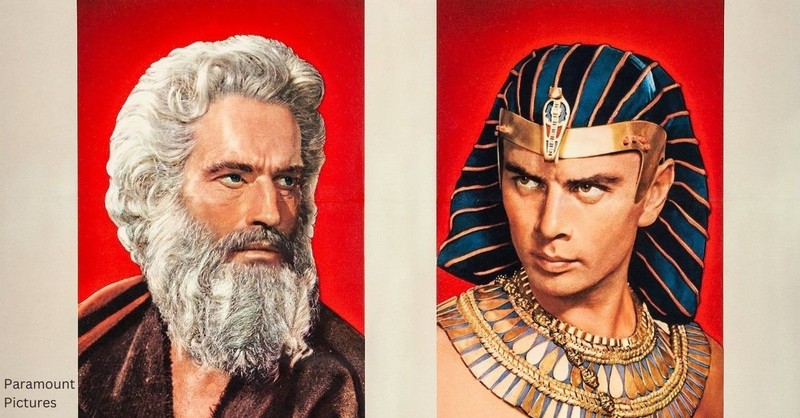
2. The Ten Commandments (1956)
Biblical epics were known for their huge scale, and they never got huger than Cecil B. DeMille’s 1950s version of The Ten Commandments. The Egyptian sets are decadent. The parting of the Red Sea uses groundbreaking tech and is still impressive today. The arguments between Moses and the Pharoah feel like something out of a Broadway play.
As important as the visuals are for a story about plagues, burning bushes, and parted seas, an epic is only as good as the characters. The Ten Commandments presents a fictional but compelling backstory for Mose and Pharoah—two men raised together, competing for the same throne, even the same woman. Moses’ conflict with Pharoah is depicted as a primal struggle between two brothers, like Cain and Abel fighting only with more pomp and circumstance. Perhaps it’s because this movie does such a great job of mixing the personal with the spectacular that so few movies have tried to compete with it. There has been a musical adaption, an animated film that borrowed its title, but it’s hard to think of another Bible movie about Moses that gets close to The Ten Commandments in quality.
That is, except for the next film on this list.
Further Reading: 10 Classic Moses Movies You Should See
Photo Credit: Paramount Pictures
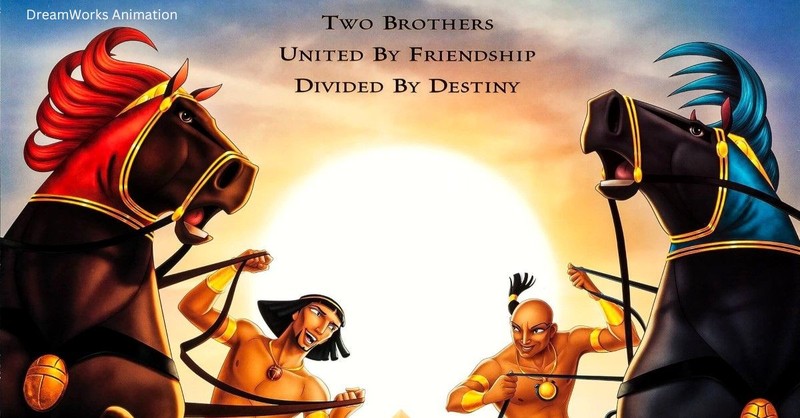
3. Prince of Egypt (1998)
Comparing this animated film to the 1950s Biblical epic about Moses is inevitable. After all, this film reportedly started when DreamWorks’ future founders met to discuss what they’d make together, and one said, “Why don’t you do The Ten Commandments?” However, Prince of Egypt acknowledges what came before while building something original. It features the same narrative about Moses and the future Pharoah growing up together but reverses its structure. Hostile foster brothers competing for a throne become loving foster brothers who plan a partnership. The story makes it clear from the start that Ramses will get the throne. However, Ramses hopes Moses will be his aid, his constant helper to advance the empire. When Moses discovers his true heritage and flees Egypt, that dream dies. When he returns to upend Egypt’s slavery system so vital to empire building, the dream’s remains are crushed and replaced by hate.
Prince of Egypt also does what all great animated movies do, telling the story through images as much as dialogue. Moses gets hints about his heritage from meeting other characters but only learns his full adoption story after he finds hieroglyphics depicting the slaughter of Israelite boys. The huge pyramids and monuments to past Pharaohs show the legacy the new Pharoah must live up to. There have been many animated Bible movies, but none better than this.
Further Reading: The Prince of Egypt
Photo Credit: DreamWorks Animation
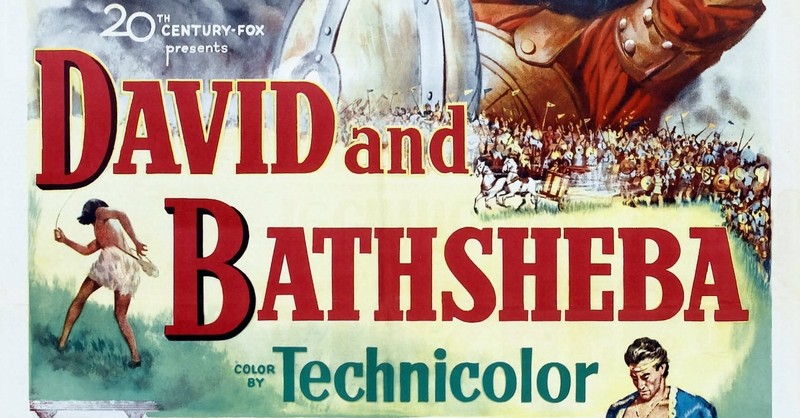
4. David and Bathsheba (1951)
Like most Biblical epics that work off a story the Bible only tells in a few verses, David and Bathsheba combines other stories and fictionalizes some details to make its story long enough for a film. This movie covers all the basic events from the Bible story but also adds David’s estrangement from his first wife Michal, his early struggles with rebellious son Absalom, and God killing Uzzah for touching the ark of the covenant. The story also avoids the messy question of how much consent Bathsheba had, making her a temptress already interested in David. David’s choice to kill Uriah gets minimized by Uriah asking to be placed on the front lines.
While these changes mean the story isn’t a close adaptation of the Bible story, it becomes an interesting meditation on the story. David comes across as a conflicted king whose only real friends (Samuel and Jonathon) are dead. Furthermore, David has come a long way since it was just him and God in the fields with the sheep; his zeal for God is not what it used to be. He rationalizes his infidelity with Bathsheba, then admits she couldn’t likely have said “no.” He wonders whether God is a god of justice or mercy and ultimately finds the answer when he repents. The plot goes a little outside the text but presents a very plausible picture of David and gives viewers a chance to think about the Bible story’s ideas in a new way.
Further Reading: Did David Rape Bathsheba?
Photo Credit: Twentieth-Century Fox
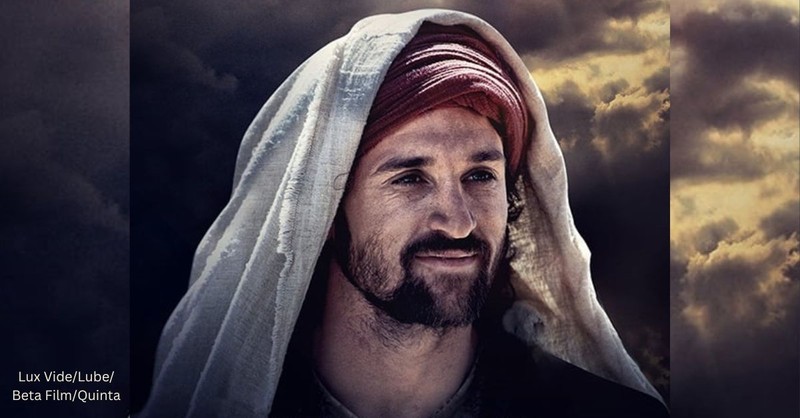
5. Jeremiah (1998)
Jeremiah, or “the weeping prophet,” doesn’t appear in most people’s lists of favorite Bible characters. He doesn’t perform miracles like Moses or kill lions like Samson. His job was to preach repentance… and keep doing it as everyone ignored his advice. Then he witnessed the consequences when Babylon destroyed Jerusalem.
This 1998 movie is one of the few movies about Jeremiah and captures his tragic story dramatically. It highlights how Jeremiah was called to be a prophet when he was young (Jeremiah 1:3) and depicts him as a young man with great prospects. His vocation seems set—his father is a priest, after all. He seems to be living in a great time of renewal—King Josiah is renovating the temple, and the book of the law has been recovered. In the midst of what looks like Israel’s best time in centuries... Jeremiah declared God was not happy. The plot makes Jeremiah sympathetic enough that viewers sympathize with him and everything he loses once he starts preaching doom. At the same time, Jeremiah’s opponents don’t come across as caricatures. They are portrayed as real people with understandable reasons to maintain the status quo. An entertaining, nuanced view of an important prophet.
Further Reading: Why Is Jeremiah Known as ‘The Weeping Prophet’?
Photo Credit: Lux Vide/Lube/Quinta/Beta Film
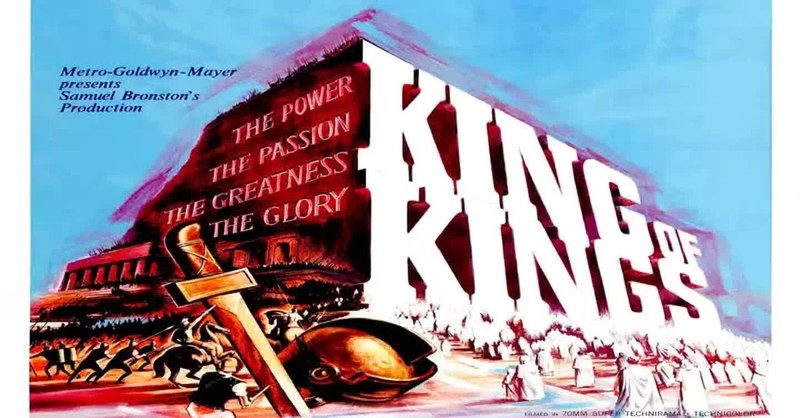
6. King of Kings (1961)
There are dozens of Biblical epics focusing on the life of Jesus, especially during the 1950s-1960s. Unfortunately, many of them haven’t aged well. What was grand at the time can seem cheesy today. King of Kings is one of the few that has aged well. The scope is huge, but the story emphasizes how side characters (Romans trying to survive the war, Israelite rebels wondering if Jesus is the leader they’ve been waiting for) experience Jesus, and the side characters are well-drawn. Jesus comes across as mysterious but not wooden, otherworldly yet relatable.
King of Kings may not be the most innovative Jesus movie ever made. Mel Gibson’s The Passion of the Christ best captures the brutality of crucifixion. Pier Paolo Pasolini’s The Gospel According to Saint Matthew captures how countercultural Jesus’ message was. However, King of Kings may be the most consistent of the classic Jesus movies and still one of the easiest to watch today.
Further Reading: 10 Great Easter Movies about the Life of Jesus
Photo Credit: Metro-Goldwyn-Mayer
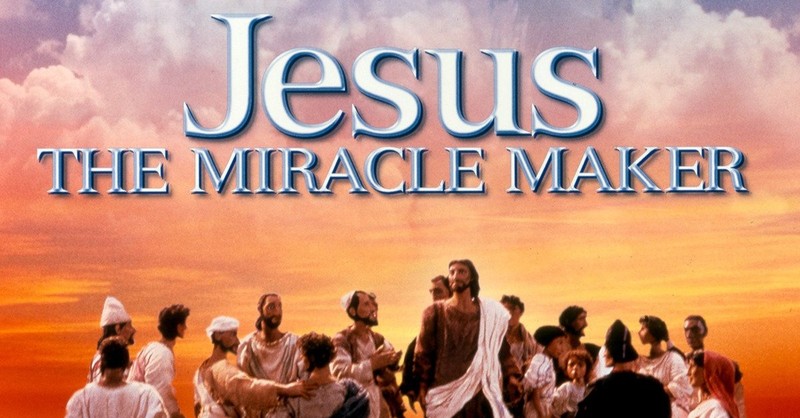
7. The Miracle Maker (2000)
You may not have heard about this animated Jesus movie when it came out, but it’s quietly built up a collection of fans and critics who call it one of the best Jesus movies ever. Made by a combination of animators, it tells the story of Jesus from the start of his ministry until his resurrection, focusing on a few key scenes so the story happens in a compact 90 minutes. Most of the story is told with stop-motion animation, but traditional animation appears in some scenes—Mary remembering Jesus as a boy, Jesus telling the parables. Both animated styles look great, a cut above most animated Bible stories.
What makes The Miracle Maker an exceptional movie isn’t just the fact its animation quality is stellar. It also finds a great balance between showing Jesus’ divinity (his miracles) and his humanity (his kindness, his sense of humor). Like many great Bible movies (Ben-Hur, King of Kings), it aids how viewers see Jesus by providing side characters who bring out different sides of Jesus’ personality. In this case, it’s a little girl named Tamar whose father, Jairus, knows she’s incurably ill. Her interactions with Jesus highlight that he was the man who said, “let the little children come to me” and set the stage for one of Jesus’ most impressive miracles.
Prince of Egypt may be the best animated Bible movie, but The Miracle Maker is nearly as good in its smaller-scale way.
Further Reading: 10 Movies to Watch This Easter
Photo Credit: BBC Cymru Wales, British Screen Productions, Icon Entertainment International, Sianel 4 Cymru

8. Ben-Hur (1959)
Film buffs still argue whether the 1923 silent movie version is better than this version. Whichever version you watch, it’s a thrilling story that works because it does what good epics do: merge spectacle with a moving story. Yes, it has sea battles, chariot races, and sword fights. However, any spectacle is only as interesting as the characters involved. Judah Ben-Hur’s journey through a lost friendship, bitter betrayal, and freedom from slavery make it impossible not to sympathize with him, and his emotional journey is just as big as the special effects. Since Ben-Hur’s story is about learning to forgive enemies and yearning for the coming Messiah, his story fits well with the Jesus story in the background. When Jesus’ fate comes out of the background, it becomes something more than an Easter ending attached to an adventure story. It transforms what came before, making the movie a story very much about the Bible even though it doesn’t make a Bible character the hero.
Further Reading: “Ben-Hur” Collector’s DVD Set Proves Collection Worthy
Photo Credit: Metro-Goldwyn-Mayer
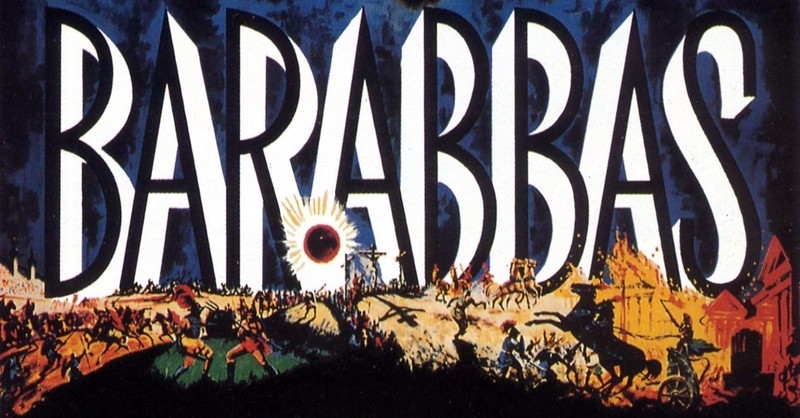
9. Barabbas (1961)
This movie falls into the same category as Ben-Hur or The Robe: a Biblical epic that goes outside the Biblical record, imagining how other people interacted with Jesus. In this case, the story follows someone briefly mentioned in the Bible: Barabbas, the murderer Pilate freed instead of Jesus. The movie imagines Barabbas having a brief encounter with Christ, brushing it off as unimportant, then wondering when a woman he loves claims Jesus has risen from the dead. Barabbas progresses from rebel to prison again, from working in sulfur mines to fighting in the Roman coliseum, repeatedly meeting Christians who are surprised to meet him.
Barabbas has many things going for it. Like Ben-Hur, it finds the right mix between adventure, historical fiction, and Bible references. It is especially worth watching today because it shows Biblical epics could be more complex than stereotypes. They’re associated with predictable endings and obvious answers. Here, Barabbas’ journey to truth is messy. Each encounter with Christians pushes Barabbas to wonder why he’s surviving things that kill most people, whether his life was exchanged for a reason. His religious journey toward truth is complicated and provokes viewers to have great conversations about why people do or don’t accept Jesus’ message of salvation.
Further Reading: What Does the Bible Tell Us about Barabbas?
Photo Credit: Columbia Pictures
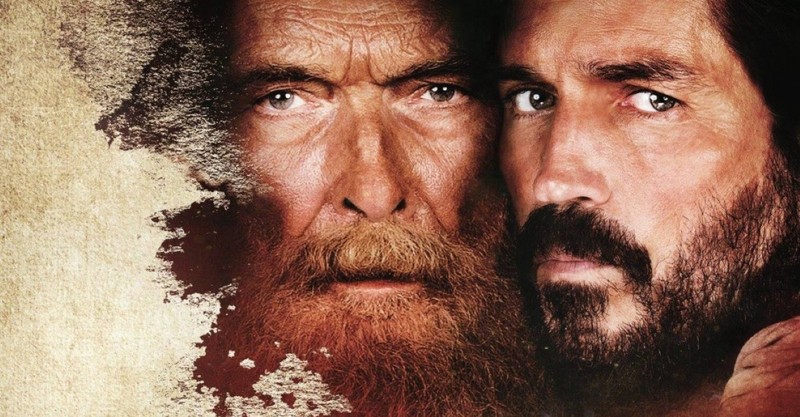
10. Paul, Apostle of Christ (2018)
The first feature-length movie to focus exclusively on Paul begins as Paul’s life has reached its end. Nero is emperor and he has blamed the Christians for the recent burning of Rome. Paul is in prison for the last time, an old man waiting for his execution. His friend Luke sneaks into Rome to visit him, hoping for some instructions to give the church in Rome. Paul gives no new advice but begins telling Luke material for “another letter.” The rest of the film alternates between three stories. Luke writes the book of Acts and tries to avoid being imprisoned too. The Roman Christians led by Priscilla and Aquilla struggle with whether to stay in Rome. The Roman administrator in charge of Paul’s prison wonders what to do with this Christian leader who’s supposed to be an insurgent... but acts nothing like one.
Historians may debate whether the book of Acts was written at the end of Paul’s life. Regardless of whether this movie fudges the history a little bit, it finds a clever way to tell snippets of the well-known Bible story while filling in what most Bible TV shows or cartoons don’t cover (Paul’s last act). The sections about the Roman administrator feel like a predictable “pagan who will convert” storyline, but the movie provides some nuanced twists on the old formula. While there are rough edges here and there, Paul, Apostle of Christ proves to be an entertaining and innovative movie about the most famous apostle.
Photo Credit: Affirm Films/ODB Films
If you enjoyed this article, you may enjoy the following articles about Bible movies:





